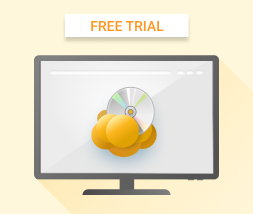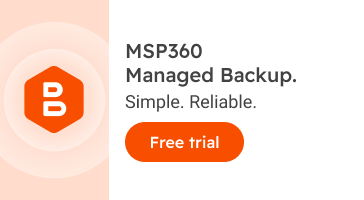Over the past year and a half, many people’s working lives have been turned upside down due to the pandemic and the sudden transition to remote work. As part of that, organizations have had to rethink how they use and optimize many of the tools at their disposal in order to remain effective and efficient as organizations. One area where this has taken place is around backup and disaster recovery (BDR).
Typically, these functions were performed through a centralized, on-premises IT department. However, with the rise of software as a service (SaaS) and on-demand cloud technology, many organizations are now turning to backup as a service (BaaS) to manage their BDR services through a private, public or hybrid cloud managed service.
Opportunities for MSPs
This shift presents a significant new opportunity for MSPs, who can help customers make the transition to BaaS and offer it as an included or add-on service to their overall package. The result is the ability to help customers with more of their essential services than ever before, as well as potentially increased sales or margins.
Further reading Selling Backup as a Service: Guide for MSPs
Benefits of BaaS for Businesses
There are many benefits to BaaS solutions to businesses of all sizes. For one, it can help lower on-premises maintenance costs for managing tapes, hard disks, and other infrastructure. It can help secure backup data and make it easier for potential recovery needs by hosting it in a remote location in the case of cyberattack or natural disaster.
Further reading 6 Benefits of Backup as a Service
Importantly, these flexible services also help a business adapt its backup needs as it grows, without the need to invest in additional costly infrastructure or staff to maintain it. Conversely, if a business were to shrink — as many unfortunately did during the pandemic — using SaaS services such as BaaS can ensure that the business isn’t paying for more capability than it actually needs. Instead, the MSP’s services can help it automatically flex, based on current demand.
Companies evaluating BaaS solutions should look for a few things. Common features include:
- deduplication,
- file sharing,
- continuous data protection,
- compliance,
- resource use,
- guaranteed backups.
In addition, an MSP can also help a customer address potential concerns like cybersecurity, data protection, bandwidth requirements, and pricing.
Why Flexibility Matters
Another thing that MSPs should ensure is that a BaaS solution supports all types of backup across all platforms, including critical software such as Microsoft 365 and G Suite. A secure and reliable BaaS solution for these critical software platforms ensures that an MSP’s customers always have access to the data they need in order to operate their businesses, as well as provides them the flexibility to grow.
Many businesses quickly discovered how important flexible and on-demand BaaS solutions were during the pandemic. Employees everywhere needed to be able to confidently access emails and shared files online from locations all around the world. Without a proper BaaS solution that accommodates these critical platforms, an employee’s data and overall productivity could be at risk of loss during a backup and recovery event.
Further reading Remote Management Features You Need in a Backup Solution
Conclusion
According to the National Archives & Records Administration in Washington D.C., nearly 50 percent of companies went bankrupt immediately after a backup and recovery incident, and 93 percent of companies that lost their data for 10 days or more were bankrupt within a year. With these kinds of statistics, it’s clear that there’s an important role for MSPs to help optimize these solutions for their customers.
- The components of a strong BaaS offering
- The importance of including local backups and advantages of cloud backups
- BaaS pricing strategies



About the author
Alexander is the head of marketing department at MSP360. He is an expert in IT marketing and has extensive knowledge of cloud storage services. He cooperates with cloud vendors, MSPs, VARs and communicates the market needs and trends to our team.
More articles by Alexander





